NRS season in review - Part Two
Team managers on the year that was in Australian domestic racing
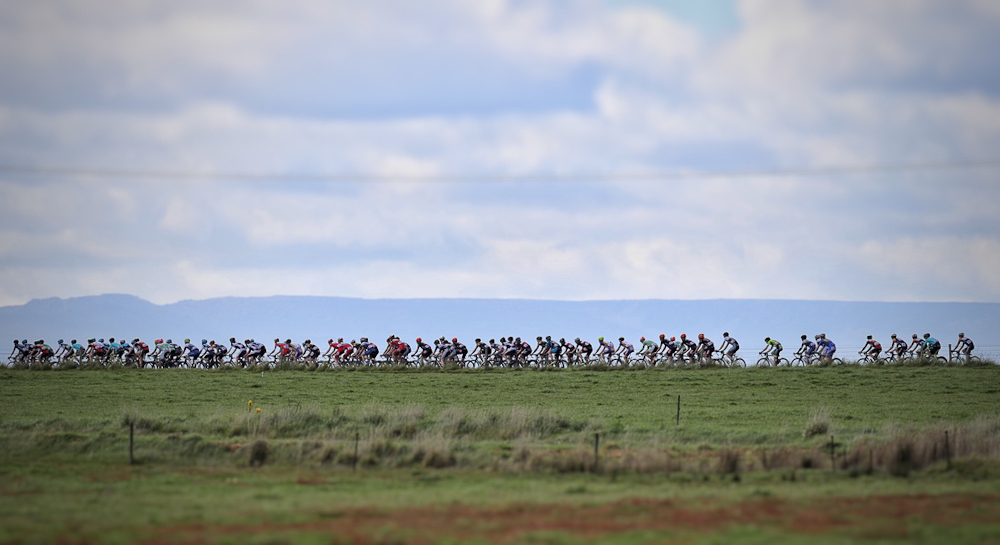
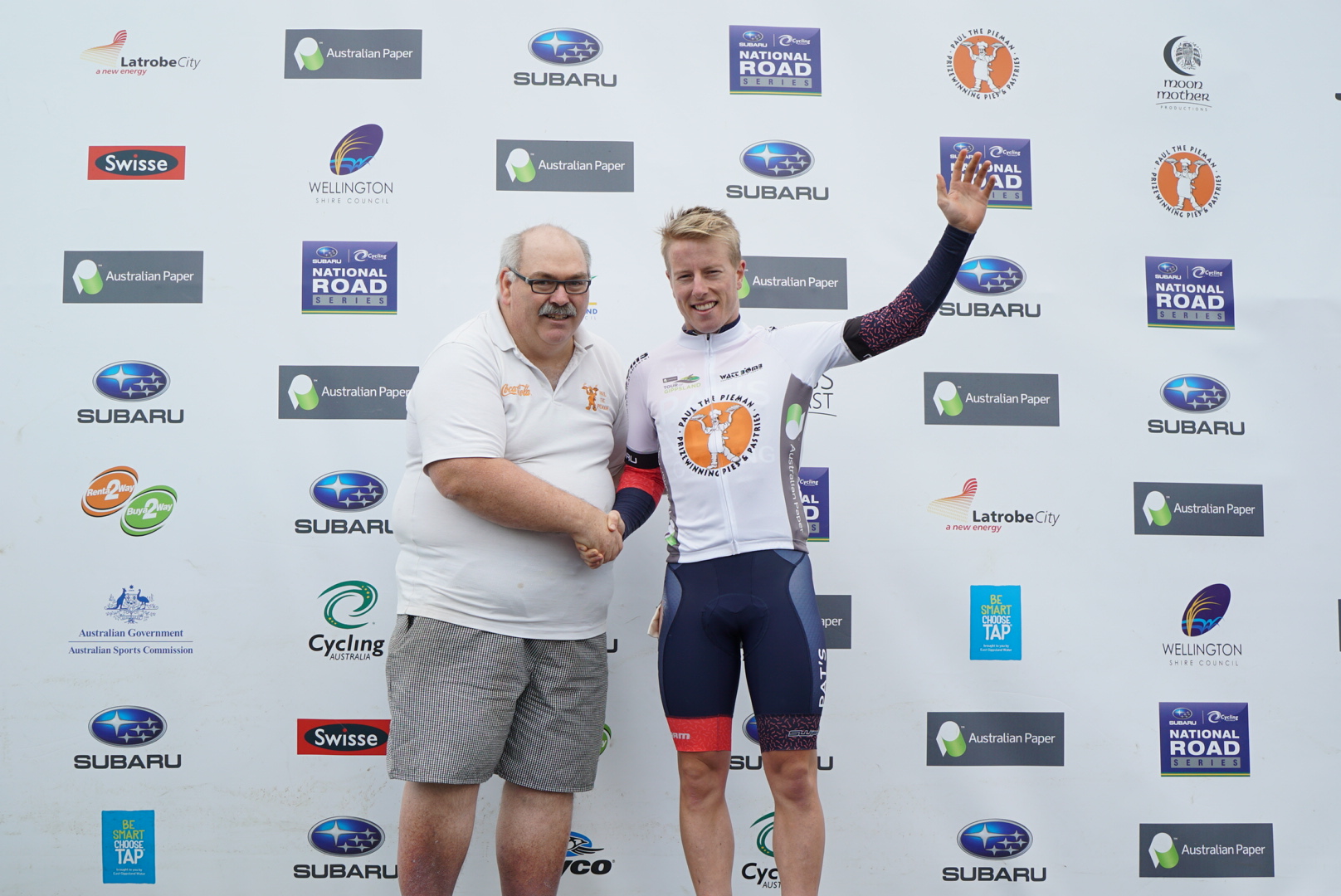
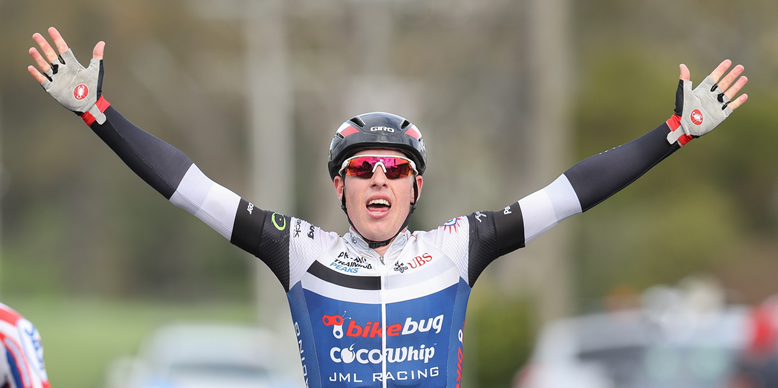
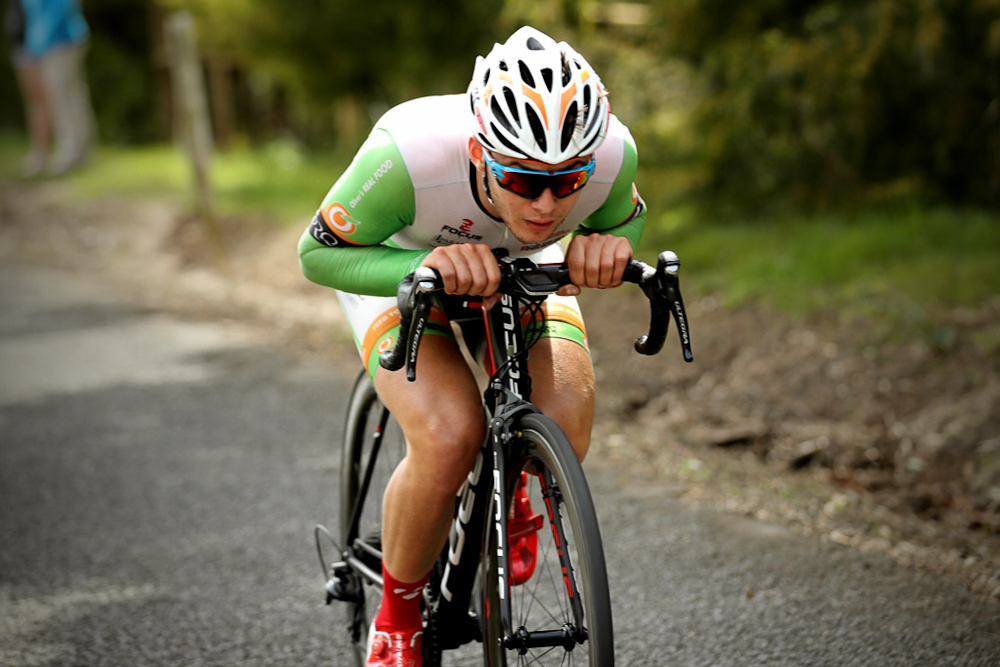
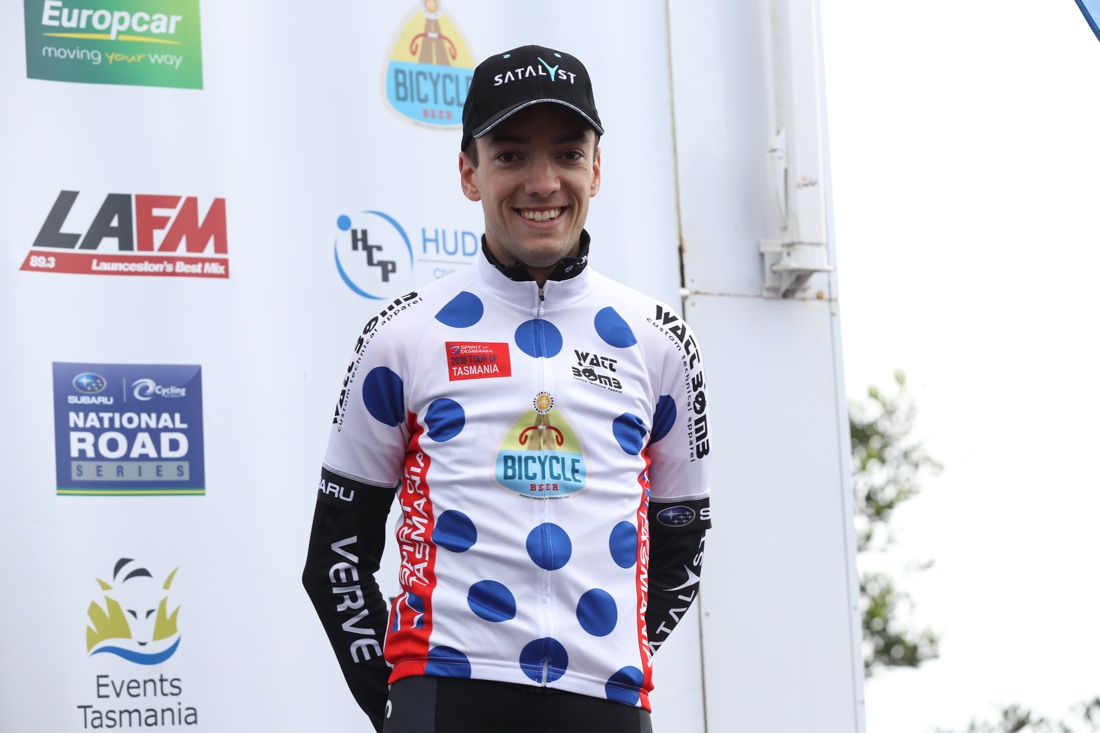
The 2016 National Road Series (NRS) served up some of the best domestic racing in seasons but the year was largely overshadowed by issues off the bike. The calendar was shorter than previous years as several races fell by the wayside, leading to uncertainty for riders, team managers, race organisers and Cycling Australia (CA). A review of the NRS was announced in June of last year by CA with the governing body announcing it is aiming to implement the recommendations for the 2017 season.
Following on from part one of the NRS season in review which featured the top-five ranked teams, Part Two features the team managers from the seventh to 11th ranked squads on the good, and the bad, and what can be done to improve the series for the 2017 season.
Cyclingnews contacted Swiss Wellness Cycling Team (6th overall) and Jayco/John West VIS (8th overall) for comment.
Pat's Veg Cycling - Robert Tighello
7th overall - 31 points
The best result for the team in 2016?
At the Tour of Gippsland we won the young rider jersey and finished second on the team classification. Fourth overall at the Tour of Canberra with Drew Morey was another good result. There were a lot of top-tens and top-fives but as a young development team, the expectation probably isn't there to win. It's more about learning for the future as most of the guys on the team are 18 or 19-years-old. It would be nice to say we had wins but we had a lot of good efforts from the whole team at a number of races.
What worked in 2016 for the NRS?
Get The Leadout Newsletter
The latest race content, interviews, features, reviews and expert buying guides, direct to your inbox!
Not much. There was some racing for the guys but it's hard to say positive things about the state of the NRS at the moment
What didn't work in 2016 for the NRS?
I am a bit older and revert to how it was years ago when individual race promoters were able to run races right abound the country and the national federation basically placed a point system on the races. So a race like Melbourne to Warrnambool and Grafton to Inverell and various tours would carry more points than easier races. Different promoters around the country ran races and it was up to the riders to choose to go and chase them or not. From the end of July through to October nearly everyone was in Victoria because of all the racing and I thought that was a better system.
Today, we have an organisation that supposedly runs the races, and I know it's become more difficult with road closures and all the rest, but entries are at an all time high and prize money is at an all-time low. I know you don't ride for the money but when you're constantly forking out and you get nothing in return…. I don't like that cycling has been taking away from the people, I don't like that we aren't able to go into towns and up main roads anymore and we get diverted away. I don't like the fact that sponsors don't get a return on investment. We don't do all the races because we are a holistic development team and our riders are all university students or doing apprenticeships so we don't have the time to chase after everything. After the cancellation of a few races early in the year, I was looking at paying around $8000 just to do Grafton to Inverell, so I put that money into a one-month trip to race in Europe in the middle of the year.
What can be done to improve the NRS for 2017?
People who are in business, try and get them involved in the sport and try and get more exposure. I have my own business, so say I was to have the money to tip in, and being an ex-cyclist, it's a shame that I'd turn around and go 'ok, for the money I can invest into a cycling team, which is my love and passion, from a business perspective I would be better off on the front of an AFL jumper with that logo'. Every Rebel shop will sell it, I'll get invited into corporate boxes at the footy and I'll be treated really well by the club.
With cycling, what we tend to have is passionate people tipping on and getting involved and sponsoring teams but they don't get a return. There is no media [coverage], there is no television, you don't really get newspapers, you don't get a lot. In Europe, it's a bit different with a lot of races covered by Eurosport with a lot of people sitting at home watching it and there can be a lot of opportunities to advertise bikes and bike sponsors. In Australia, we really struggle to do that well and it's shame because interest in the sport is at an all-time high, participation in the sport is at all time high, yet we can't convert that into racing.

Cyrus Monk of Pat's Veg in the classification jersey
Oliver's Real Food Racing - Sam Layzell
9th overall - 13 points
The best result for the team in 2016?
Our best result would be on par, the king of the mountains classification at the Tour of the Great South Coast with Ryan Christensen or running second into Metung at the Tour of Gippsland with Sean Whitfield who was beaten by Pat Shaw by a tyre width. They were our two best results in the NRS this year.
What worked in 2016 for the NRS?
I think the new point system worked, even though it was very top heavy. I think reflecting the UCI structure makes it a lot more workable. Obviously, it rewards high on GC finishes and it doesn't penalize you when you have a whole team working for one rider. Now you can concentrate all your eggs into one basket and be rewarded for finishing high up on the overall rankings. Everything chugged along. There was quite a few races that were run well and the GTR Events team set the precedence so I would actually say their events worked well.
On the flipside, when we went to Tasmania, the significant lack of discount on the boat over there makes me wonder what they are thinking. If the Spirit of Tasmania is the main sponsor, why not try and get all the teams over there and maybe even do a team presentation on the boat on the way over? It's just very expensive to run a team in the NRS and little things like that would go a long way.
The mid-season break was something that also worked for this season so hopefully CA keep that for next year.
What didn't work in 2016 for the NRS?
The main problem is that who is administrating the NRS, is not administrating the NRS so there is no communication from the top. It started in January from not having the forum in Ballarat, that,s where things started and from there the whole way along there hasn,t been any sort of structure and communication. The lack of communication, and for me, running a team on a low budget, the severe lack of coverage and particularly the TV highlights coverage. When Channel Nine signed on two years ago there was the big thing presented to us by Nick Green and CA saying that we have signed this big lucrative deal with Channel Nine for coverage, but for now, we just have the Full Cycle TV show [A weekly 30-minute cycling programme, ed].
The lack of coverage has really stung me, especially as two years ago we were promised all this stuff from Channel Nine. I said at the time of the team forum, 'are the teams going to get any royalties from the TV coverage?' and the other teams laughed at me but that's how sport works. Considering how popular cycling is and how the NRS got on a roll with media coverage, to cut back to two or three minutes highlights on Full Cycle is not good enough. In 2008 and 2009, we had full half-an-hour highlight packages for say the Goulburn to Sydney and it was as if the commentators were calling the race live. We get no return unless we do it ourselves so we are lucky that our sponsor Oliver's is appreciative of the situation and understands to an extent, but how long are they going to stick around if they are not getting anything?
What can be done to improve the NRS for 2017?
First, we need to have a more stable calendar in terms of schedule. The main thing the NRS needs is stability. There is a great talent pool of riders and willing sponsors. They have all the tools so I can't understand why it's not working. I would say that CA needs to be more organised in terms of the racing calendar. It's hard to ask but we need more structure.
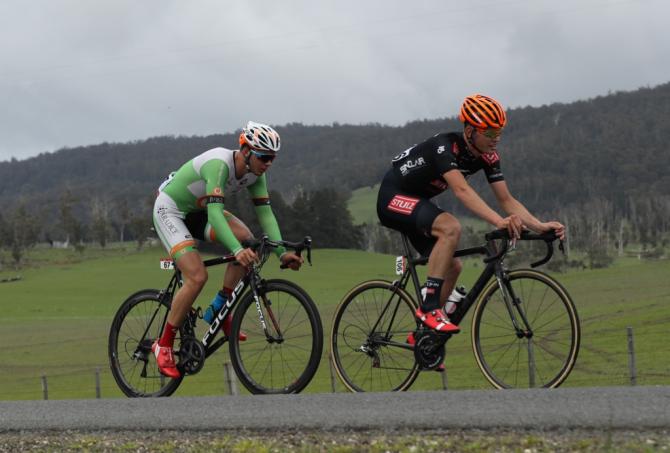
Edward Clements (Oliver's Real Food Racing) riding in the breakaway at the Tour of Tasmania
JML Racing - Jon Leighton
10th overall - 13 points
The best result for the team in 2016?
In our inaugural NRS season we won a stage at the Tour of the Great South Coast with Jake Klajnblat.
What worked in 2016 for the NRS?
The fact that we have a national competition that attracts the best domestic athletes.
What didn't work in 2016 for the NRS?
It should be a professional competition, but it's not. It is a series of individual events put on by good people who are the event promoters or local clubs or the state body, but there is no semblance of coordination between the events or a sense of national competition. The events are also typically in remote locations with no connectivity between the events, making it an extremely challenging and expensive logistical exercise for teams and riders.
What can be done to improve the NRS for 2017?
We need to create a proper national competition with races that attract sponsors and interest from the cycling community, which is typically in the major cities of Australia, rather than racing in remote areas, which have little interest for anyone rather than the participating riders and the specific event organiser.
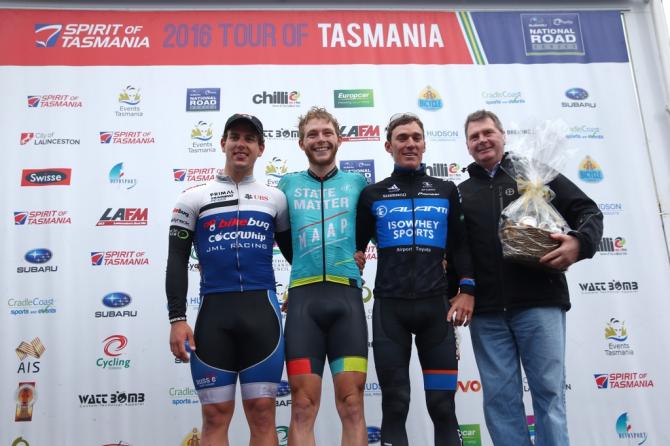
Sam Welsford (JML Racing) on the final day Tour of Tasmania podium
Satalyst Verve Racing - Adrian Spinelli
11th overall - 12 points
The best result for the team in 2016?
As a team, by the end of the season we gained some consistency so it was nice to take the king of the mountains classification at the Tour of Tasmania. Overall for us, it's looking to develop a group of young riders and I think as a young team they are constantly learning and I felt by the end of the season they were functioning well as a unit. Going back to the start of the season, we also had a few notable performances from Matt Clark getting top-tens in the Australian nationals.
What worked in 2016 for the NRS?
For us the continual opportunity for some of our younger riders to race at NRS level and compete against some of the best in Australia, that includes our emerging U23 talent, and we see the NRS as a really great opportunity for development and that's always been a primary goal of the team to offer that opportunity. As a series, having stage races in close proximity and in a cluster towards the end of the year worked well for us. Particularly as we have to travel across from Western Australia and our overheads to do that a higher than perhaps over teams.
What didn't work in 2016 for the NRS?
It's been discussed openly that we lost races that were scheduled as part the calendar so that was challenging logistically and also from the rider's expectations and planning in terms of race days per year.
What can be done to improve the NRS for 2017?
There is a sub-committee that is formed at the moment and getting a plan moving forward for next season, so what can be done to improve the NRS is to provide the teams with a firm calendar to know what is coming up in terms of racing and for us to be able to rely on that is really important in terms of the riders point of view, the sponsors point of view, the teams point of view, and for planning logistically for next season. With the sub-committee that has formed, getting some structure in place pretty quickly would be beneficial for all the teams and for us particularly
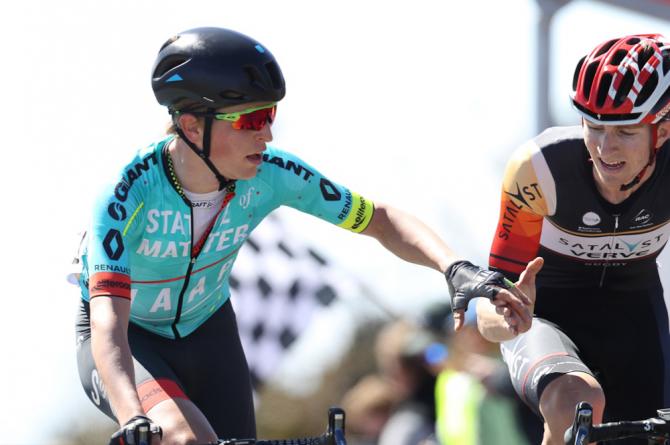
A Satalyst Verve Racing rider bumps first with a fellow rider at the Tour of Tasmania.
To read part one of the NRS season in review, click here